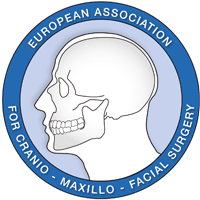Side effects of sleep apnoea
At night, this dangerous illness is manifested in excessive thirst, frequent visits to the toilet and extreme sweating. During the day the affected party can suffer from a lack of concentration and pronounced tiredness through to microsleeping.

Sleep apnoea considerably restricts quality of life. If the sufferer does not experience restful sleep at night, this can lead to tragic consequences during the day.
In the case of sleep apnoea, breathing pauses repeatedly during sleep. These pauses last from a few seconds to significantly over a minute. The cause of the respiratory arrests are generally restricted or blocked airways. These cases are referred to as obstructive sleep apnoea (obstruction = blockage).
As almost all sleep apnoea sufferers snore loudly, in many cases it is their partner who notices these threatening pauses. Professional circles estimate that 80% - 90% of those affected are not aware of their illness. The respiratory arrests cause the oxygen content in the blood to dangerously decrease – until the body “activates the alarm”. The sufferer wakens in a panic, with an explosive snoring noise and gasping for air then simultaneously his breathing begins normally again. The frequent waking reactions are triggered by the distribution of stress hormones such as adrenaline or cortisol, to protect the sleeper from sudden suffocation. Interestingly, these night-time waking reflexes are generally not registered consciously by the sufferer.
These disturbances can occur up to several hundred times and prevent a restful and relaxing sleep. Consequently, deep sleep phases are seldom reached. A restful night’s sleep is severely disrupted and as such there is insufficient regeneration. Another issue is that the patients with obstructive sleep apnoea often wake up at night due to an urgency to urinate. The frequent visits to the toilet are an additional factor that disturbs their sleep. The sufferers often claim that they always sweat strongly at night and when they wake they are excessively thirsty. The kidney function is also negatively influenced by sleep apnoea, which can even lead to kidney insufficiency. These processes create a dangerous vicious circle.
The frequent breathing pauses create even more problems: The sleep apnoea sufferer does not feel rested in the morning and often has headaches and dizziness after getting up. A more serious issue, however, is that the sufferer can experience increased drowsiness, forgetfulness and poor concentration during the day. This can have unpleasant and serious consequences in everyday life.
Whether you are in an important meeting, operating machines or in road traffic: In all these situations, people who have had too little sleep and consequently are not concentrated make mistakes, which can lead to extremely tragic consequences. Experts estimate that the widespread disease sleep apnoea causes economic damage amounting to billions. The human suffering caused cannot be put into figures.
Obstructive sleep apnoea also causes or promotes excess weight. It is well known that excess weight (obesity) places severe stress on the human circulation, but also applies pressure directly to the airways. It is medically proven that the body can only burn fat or break down stored fat deposits during restful sleep. As a result, it is almost impossible for overweight sleep apnoea sufferers to lose the extra pounds. Diets rarely lead to the desired goal in these cases.
The symptoms of sleep apnoea must be clarified diagnostically by a specialist because the sleep disturbance can cause serious consequences such as high blood pressure. Abnormally high blood pressure hugely intensifies the risk of type 2 diabetes, cardiac arrhythmia or cardiac insufficiency. Strokes and heart attacks are often the tragic consequence. To ward off these life-threatening effects, obstructive sleep apnoea has to be treated consistently.
Obstructive sleep apnoea is cured forever using the globally unique and pain-free surgical method “Rotation Advancement” developed by Prof. Sailer. The uncalculated risk of severe secondary diseases and the life-threatening consequences then become a thing of the past.
Do you have any questions or would you like a personal consultation? We are happy to help.




 )
)